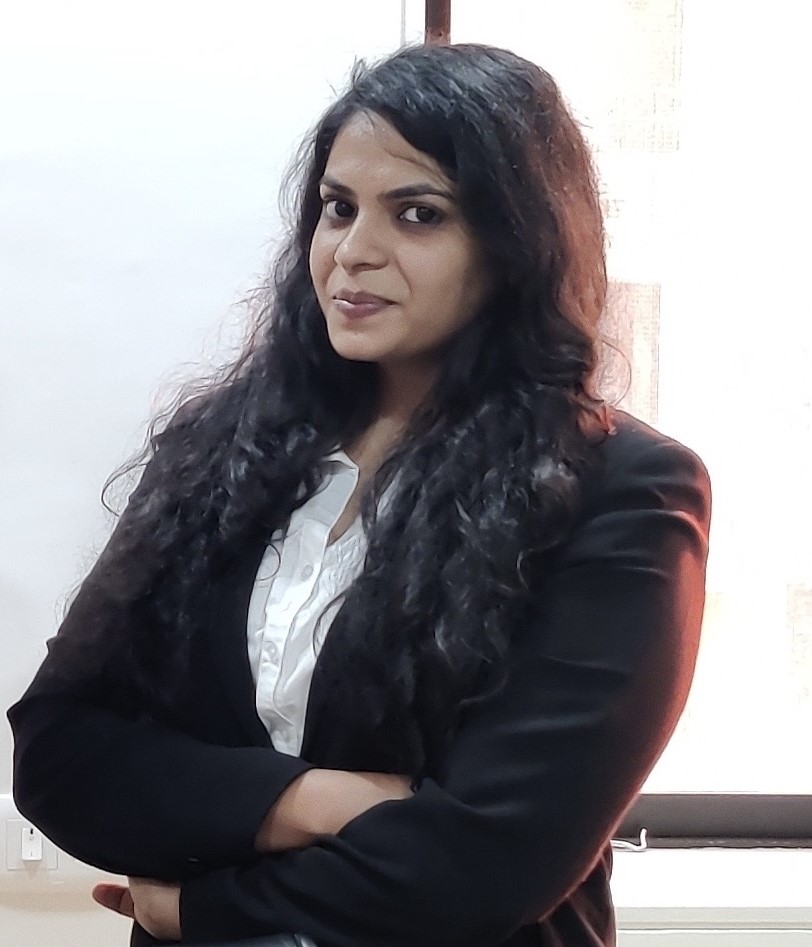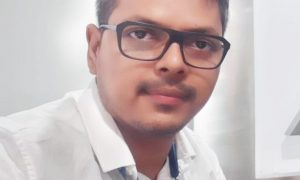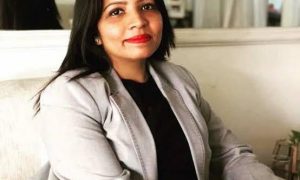This Interview has been published by Pragya Chandni and The SuperLawyer Team

Can you share with us what inspired you to pursue a career in law, especially specializing in criminal law?
Being a 1st generation lawyer, the only law I was privy to was on television. I have to confess that it was in my 9th or 10th Standard that the television was what got me intrigued into pursuing law, solely for the reason that a lawyer got to wear a blazer and a gown that looked like Batman’s cape. After my first corporate internship behind a desk all day, I knew corporate law was not meant for me and the court was where I would want to be. I was lucky enough to get an internship under Mr. Satish Maneshinde in my second year of Symbiosis Law School, Pune, and that was where my fondness and passion for criminal litigation began growing. I interned for a brief period with Mr. Siddharth Luthra as well in Delhi and thereafter continued my internship under Mr. Maneshinde until I graduated in the year 2013. It was these periods of my internships wherein I used to observe the court proceedings and arguments, that made me realize that I want to practice criminal litigation.
With your extensive experience working under Advocate Satish Maneshinde and handling high-profile cases, how did those experiences shape your approach to practicing law?
Immediately upon graduation, I joined the Chamber of Mr. Satish Maneshinde as a Junior Advocate and that is when I realized, what was studied in college in our CrPC syllabus was 5% of the learning of criminal litigation. It is not the books that will help you practice law in this field, but it is the experiences, practical teachings and observing advocates in court. I was fortunate enough to assist Mr. Maneshinde in various High Courts across the country and the Supreme Court and I realized how the practice is very different in each state, be it inside Maharashtra itself or in Karnataka, Delhi, Hyderabad, Tamil Nadu or Uttar Pradesh. From these experiences I learnt the soft skills which are very important in our practice area. With respect to the high profile cases, those experiences taught me how important it is to keep calm and no matter who your client may be, in your head, he or she should remain just a client. In high profile cases the stress will be greater, there are people watching you at all times, and thanks to the new generation of paparazzi, your every move can be tracked. It taught me how sometimes it is important to stay shut and just say no comment when the media comes at you, because publicity is not how one should practice law, and sometimes anything that you say or do can be used against your client at a later stage.
What motivated you to co-found Numen Law Offices, and how does your firm differentiate itself in the legal landscape?
I always had it in my head to go independent one day, so that motivation was there from the beginning and I was grateful enough to have a boss and colleagues in my chamber who supported and helped me spread my wings, and till date cheer me on. I initially wanted to set up my own chamber practice but then a common friend of Arush, George, Chaitanyaa (my partners) and mine, got the 4 of us together and I guess, we were all at the same page in life so we decided to throw in our personalities and practice areas together and establish Numen Law Offices. We created a Firm wherein the Partners were young, the enthusiasm and passion was high and the determination was shared. Our firm, as of now, captures the best of the two cities in India when it comes to litigation – Bombay & Delhi. After more than 6 years of practice, when we started Numen Law Offices, I had learnt the ropes of dealing with varied criminal cases where the work started from the police station and went all the way up to the Supreme Court. I take up all kinds of criminal cases ranging from serious offences of murder, and rape to cheque bouncing and PMLA, EOW, MPID and other white collar crime matters. My idea was to bring criminal litigation into the law firm space and have all the work done within the firm, instead of outsourcing it. Basically have a mix of chamber practice and a law firm. I myself conduct trials that involve IPC, NIA, CBI, EOW, MPID, POCSO, and cheque bouncing.
Apart from having its own specific criminal litigation team that deals in various facets of criminal law including white collar crime, our Firm is truly unique owing to what each Partner brings to the table. We have Arush Khanna who is an officer of the International Bar Association’s Young Lawyers Committee and India’s first ever Ambassador of the Vienna International Arbitral Centre, apart from his regular practice in courts. There is George Thomas, who is an Advocate on Record (a tough exam to crack) in the Supreme Court and deals with all subject matters of law, be it civil, criminal, tax, etc. And there is Chaitanyaa Bhandarkar who practices a variety of commercial law, real estate, arbitration and private clients among other areas. Owing to this wonderful combination of what I would like to call “”the Fantastic 4”, we being a new law firm with very young partners managed to survive covid and are successfully managing to grow our Firm and win various accolades and recognitions from IBLJ, ALB, Legal 500, Benchmark Litigation and Legal Era, apart from getting orders and reported judgements.
Could you discuss some of the key challenges you’ve faced while representing clients in complex criminal matters, and how you’ve overcome them?
Each case in criminal litigation is different and has to be approached and tackled differently. It will hardly ever be the same route as another case. Apart from knowing the law, it is very important to know various other fields such as accounts, medicine, etc. While dealing with complex criminal matters, the main challenge one faces sometimes is the lack of knowledge when it comes to these specific subjects. Without understanding these subjects, it will be difficult to find the right strategy for your client. In the beginning, there were times where I was faced with a challenge of being unable to comprehend some accounting work or unable to understand a doctor’s analysis with medical jargon on a post mortem report and that’s when I turned to my friends. Friends who are CAs or doctors, who I can question time and again and in the manner I would need to in order to find the correct path to get my client out of the mess, which Google and textbooks could not provide. With respect to white collar crime, another challenge has been “how and why has the client done this” because it may make no sense to you at first. To overcome this, I realized, it is as easy and basic as just learning how to get correct instructions from your client and get them to open up and narrate their thought process to you.
You’ve been involved in a variety of cases, including white-collar crimes, sexual offenses, and drug-related offenses. Can you walk us through a particularly challenging case and how you navigated through it?
This would have been 3 years into practice, where I was approached in court by an accused who was standing trial under the POCSO Act and he was requesting me to represent him and it was a pro bono matter. I of course enthusiastically said yes and later got to know the victim was 10 years old at the time of the incident. Then came the court date wherein the child had to be examined by the prosecutor and cross examined by me. Under POCSO, the recording of evidence is dealt with differently. The prosecutor, the defence lawyer and the judge sit on the same table next to the victim. None of us wore our bands or coats or gowns and there was candy on the table for the child to feel comfortable. I think this scenario enabled me to also be comfortable and my human side just kicked in and I was able to ask the questions I wanted to without affecting the child and at the same time carrying out my duty towards my client. Post court, I had a conversation with my sister about it and we discussed the emotions going through me and I realized being an officer of the court is all about representing a person who has a right to be defended. As lawyers we need to perform to the best of our ability for our client, but before everything else, we are officers of the court and we can maintain our humanity while doing so. I did have a candy as well and chose not to be hard on myself for having to do this, because at the end of the day, every person has a right to be defended, so it’s better you do it ethically than another lawyer who may not have been so kind to the child.
As a recognized legal leader, you’ve been acknowledged in prestigious lists such as “India’s Future Legal Leaders” and “India’s Rising Stars.” How do you maintain your professional excellence and stay at the forefront of the legal industry?
It is all about hard work, consistency, being a good lawyer not only in court but towards your clients as well. I am always punctual, be it in court or when it comes to delivering work to a client and updating the client about the status of the case. I realized after getting into the law firm space that networking is integral and I try my best to work on that. At the same time it is crucial to keep reading the latest judgments so I ensure I take time out to read. And sometimes driving my car while blasting music to blow some steam off definitely helped maintain professional excellence.
Can you share some insights into your role as an external member of the Internal Complaints Committee under the POSH Act and its importance in ensuring workplace safety and gender equality?
One of the main advantages of implementing the POSH Act is the establishment of safe and inclusive workspaces. When employees are assured that their workplace is free from sexual harassment, they feel more comfortable and confident. This improved sense of security encourages more women to actively participate in the workforce, leading to better gender representation across all levels of the organization. When carrying out the work as an external member, you have to be responsible as you have a very crucial role to play in the Internal Complaints Committee. This is the member that needs to act as a neutral third party that keeps the bias of the ICC in check and ensures that the management does not influence the decisions. Both parties involved are counting on you to carry out your job independently.
Lastly, drawing from your rich experiences, what advice would you give to recent law graduates who are embarking on their legal careers, particularly those interested in criminal law?
Be patient and first train under a senior for a considerable period of time. The only way to ace this field is by observing in court and gaining practical experiences. No book will be able to tell you how to cross-examine. Only observing our seniors in court when they are conducting trials will educate you. Start from the lowest level and learn the procedures upwards. One cannot directly start practicing in the High Court as a criminal lawyer. You need to know the procedures right from the time that a FIR is registered. If you are interested in criminal law you need to know that it does not start and end with white collar crime.
Get in touch with Lakshmi Raman-























